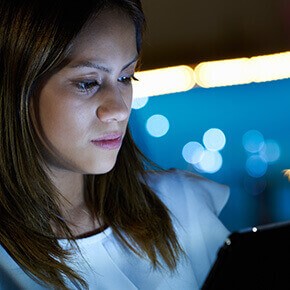Science Says: Sleep
Now more than ever, a full night's sleep is so important for your good health

Sleep deprivation may be modern society’s undoing
It isn’t just the mattress company that wants you to get more sleep. News and medical authorities everywhere continually report that always-on entertainment and hyper-connectivity – in short, our “sleep less” culture -- is taking its toll on both physical and mental health worldwide. Sleep deprivation is now connected to illnesses and risks, like heart disease, diabetes, obesity and even cancer.
Media mogul Arianna Huffington’s popular book, The Sleep Revolution (April 2016), rightly calls the problem Our Current Sleep Crisis. She reveals: “There are nearly five thousand apps that come up when you search "sleep" in the Apple App Store, more than 15 million photos under #sleep on Instagram, another 14 million under #sleepy, and more than 24 million under #tired. A quick search for "sleep" on Google will bring up more than 800 million results. Sleep isn't just buried in our subconscious; it's on our minds, and in the news, as never before."
So we’re not getting enough, it’s detrimental, and we know it. Now, how do we solve the problem?
Did You Know? Sleep Needs Decrease Over Your Lifetime
We all know that babies need the most sleep (lucky little ones)! And it varies by individual, of course, but in general the human body requires less sleep as it ages — the oldest among us requiring the least sleep. Consider the differences here (from the U.S. National Institutes of Health):
- Schoolchildren (6 to 13 years): 9 to 11 hours
- Teens (14-17 years): 8 to 10 hours
- Adults: (18-64 years): 7 to 9 hours
- Adults over 64: 7 to 8 hours
Beware the Blues
One topic that intrigues sleep researchers is the study of how light interrupts sleep. Any nighttime light can decrease melatonin secretion, but the very worst light falls in the blue/green area of the color spectrum. Good news: You can download blue-blocking software for your computer, or buy blue-blocking glasses. Read more: http://www.health.harvard.edu/staying-healthy/blue-light-has-a-dark-side
5 Tips For Your Best Zzzzs
 Spend some time outdoors during the day — even just 10 minutes helps your body clock stay calibrated so you can sleep at night.
Spend some time outdoors during the day — even just 10 minutes helps your body clock stay calibrated so you can sleep at night.- Stick to a routine. Bedtime consistency — yes, on weekends too — guides your brain to know when it’s bedtime.
- Gentle stretching before bed: Easy forward bends turn your focus inward, calming your mind and body. Breathe.
- Quiet, cool, and dark. Conditions in the room where you sleep are important. Make the temperature comfortable, leaning toward cool, turn the lights off (use black-out shades if necessary), and shhhhhhhh.
- Wear something soft so you can move freely. If you prefer light support while you sleep, an Amoena seamless bra or our Kitty Top are perfect for sleeping.







